14 Grief Myths - Busted
Some of the most common grief myths are explored by the author of this website Elizabeth Postle, RN, HV, FWT.
There are many myths attached to the grieving process and on this page we discuss a few of them. Often it is those who have neither experienced loss nor been challenged by the death of a close loved one who utter these clichés.
1. Time heals.
The loss of a loved one changes us and we cope with each new day in the best way that we can. As time goes by our ability to hide our inner feelings becomes easier. We can think of our loved ones with happy memories and less pain. However, we never forget those that we have loved. We try to live in the best way that we can for them but some scars never heal.
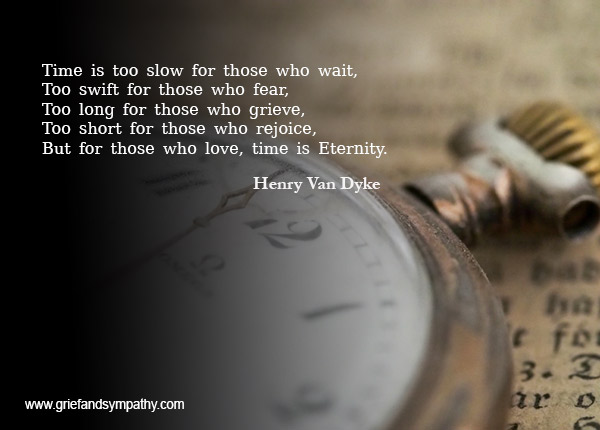
2. Grief comes in 5 stages.
This is one of the biggest grief myths which has been adopted by many health professionals and psychologists over the years, but has now been largely debunked. The 5 stages of grief were first put forward by Elizabeth Kubler Ross in her book 'On Death and Dying' as a way of people who knew they were going to die coming to terms with it.
The stages were then applied to grieving too, but Kubler-Ross never intended that the stages should be worked through in a linear fashion, or even that everyone would go through all the stages. Read more about Elizabeth Kubler-Ross and her pioneering work in the field of grief.
In reality, everyone grieves in their own way and many describe it as a 'roller coaster of emotions'. You might experience some of the stages (denial, anger, bargaining, depression and acceptance) but your experiences may be completely different.
3. The goal of grief is to 'get over it'.
There is no such thing as 'getting over grief'. The aim is to come to terms with your loss and learn to adapt to life without your loved one. Some days are better than others. Filling your days with friends, hobbies, work and routines helps. Looking after your health and watching your diet is also important. One day you may get to a point when you are able to cope and enjoy your life, but we will always miss those we have loved.
4. It takes about a year to get over the death of a loved one.
First of all, we are not 'getting over' the loss of our loved one, but learning how to accept our loss and and how to cope with all the changes in our daily lifestyles. A year is no time at all to adapt to the loss of a partner, child or pet who was a major part of your everyday life and who is still badly missed.
There is no time limit on grief. One day we may realise that we have enjoyed a day out with friends, but then sad memories may creep back. Give yourself all the time you need. Remember to keep some good friends to support you and to talk to on the difficult days.
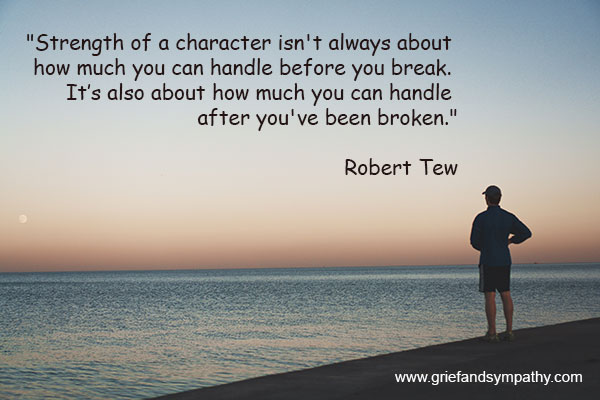
5. How long you grieve depends on how much you loved the person.
Grief is not a competition. How we cope depends on many factors such as whether we have experienced the death of someone close before, whether we have any support and whether we also have other problems such as financial or work issues. Our own personalities play a large part too such as whether we are introvert or extrovert.
How much you loved the person is a complex issue which doesn't necessarily reflect the severity of your grief. Sometimes you may experience a lot of pain grieving for a parent that you didn't get along with because you are grieving for what might have been, or the waste of all those years together that you should have had but didn't.
On the other hand, you might have loved someone very deeply, but you cope with your grief because of your gratitude for the love that you have shared.
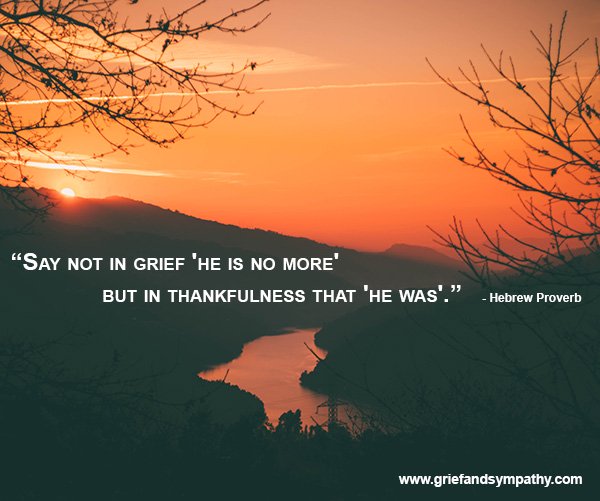
6. Grief has a final endpoint.
The pathways of grief should lead us to a point of acceptance and being able to remember our loved ones with wonder and happy memories. However, there isn't really a final end point. Many people talk about the roller coaster of emotions. You may think that you have got over the worst of your grief, but then something can bring it all back.
It might be a song or a smell. Or you might be feeling low or stressed. Life's ups and downs can surprise us at any time. The people we love and lose will always be with us. The memories are there forever. We can only try to live the best life we can for them, but without them.
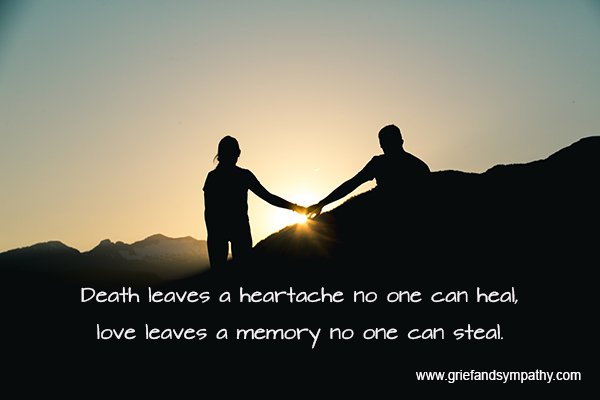
7. Once you are done grieving life will go back to normal.
Life can never be the same again after the loss of someone close. You and your lifestyle will have changed. It doesn't mean that you won't enjoy a quality of life again, but it will be a different life. It may take some time to work out what that life will be and to adapt to the changes.
Some people find that it is difficult to find their self-identity again as their lives were so intertwined with the person they have lost and they may need some help to find their true selves again. Read our page about loss of self-identity.
8. If you aren't crying, you aren't grieving.
When a loved one dies, shock protects us from the initial sorrow and sadness of their loss. (Read 'What is Shock' here). This often prevents people from crying. I have known friends who were unable to cry for months afterwards. The floodgates can then open much later, sometimes in the most embarrassing times and places.
Many people can only cry in the privacy of their own homes and also try to protect their families and friends from their sadness by putting on a brave face to the world. Some people may also go into denial of their grief, where they shut it away as it's too painful to face. This is, still a form of grief, but the grief gets stuck and it may take many years before that grief is processed. See our page on 'denial of grief.'
So yes, it is good to cry after a loss, but many will not do so in public.
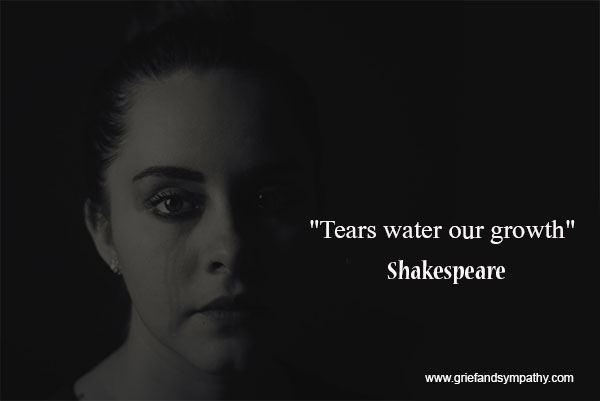
9. We all grieve in pretty much the same way
Considering we are all individuals with varied personalities and family circumstances, this really seems an incredible statement. We all bring our own personal life experiences to bear on anything that happens to us. We react to life's crises depending on our previous positive or negative expectations of life. We are all special individuals who will grieve in our own way and in as much time as we need.
10. The second year is the hardest
I know of no research which states that this is the case, and it is a bit of an old wives' tale, in the same way as the one above which says you should be over your grief in a year. As we have said, everyone is different and grieves in their own way and it is impossible to predict how long the grieving process will be for anyone.
In some cases, it may be that the shock has dissipated and people are not showing as much support and sympathy any more as time has passed, which may make some feel more vulnerable as time goes by. Whereas others have worked through their grief by the second year and found a way to move on.
11. Grief is only felt when someone dies (or you can't grieve someone who is still alive).
There are many types of grief that occur when the object of the loss is still alive. One of the major ones is divorce or separation of course, but there are many others. When partners divorce or separate there can be many aspects to the loss which can cause grief. People can lose their homes and their friends. Children may have to change schools. Even pets may be lost to a partner. In-laws who may have been close friends are lost too. Children may lose grandparents, aunts, uncles or cousins. See our pages about grief related to relationships.
Dementia is another major cause of grief when a partner may be still alive but their personality is changing and they may need a lot of care. The caregiver loses their partner and their support and start to grieve well before the person actually dies. Read our page about the grief for a spouse with dementia.
There are also various types of anticipatory grief where someone has a terminal illness and a family are in shock and grief about the loss of their loved one which is to come.
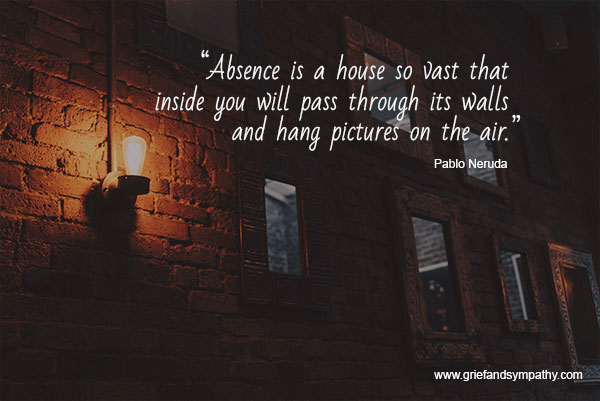
12. There is a right way to grieve and a wrong way.
There is no right or wrong way to grieve. I believe that this myth is related to the 5 stages of grief where people have come to believe (mistakenly) that you need to go through a certain number of stages and in a certain order. This is not true. Everyone grieves differently and in their own way. You have your own life journey and what helps some people may not help others.
So find your own way with whatever helps you, whether it be the support of friends or family, a grief support group, online groups, journalling, counseling, yoga or meditation. There are many ways that you can get help with your grief, but there are not right or wrong ways to go about it.
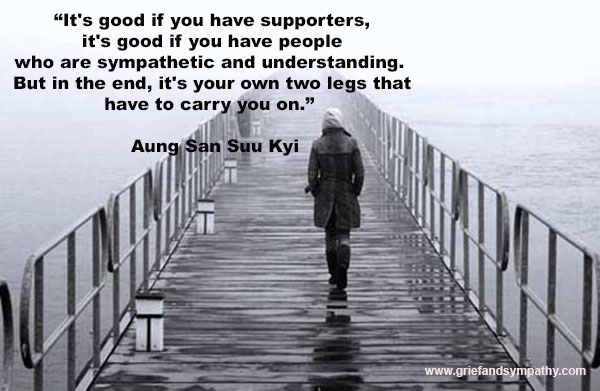
13. Children don't grieve.
Children do grieve and need lots of help and support. They need to talk about their loss and be told the truth. If they think someone has gone to heaven, they may expect them to return. They also need to be told it wasn't their fault as they think they may have done something to cause the loss of their loved one.
It is important to let teachers at their schools know so they can also give support. We have more information on helping children cope with grief here.
14. You grieve less if you know someone is going to die, or if they were old.
The pain and sorrow of grief is raw, no matter how old or ill your loved one was they they died.
When you lose an elderly parent, you may have lost the only person who knew you for your whole life and upon whom you always relied. You may be relieved that they are no longer suffering, but the loss is just as heartbreaking.
Grief is the price we pay for love. Any loss of a person or pet who was a major part of our lives, however much expected, is going to cause pain. We still have to learn to live our lives without them. With luck, their love has made us strong, and our happy memories will help us to accept their loss and find meaning in our lives once more.
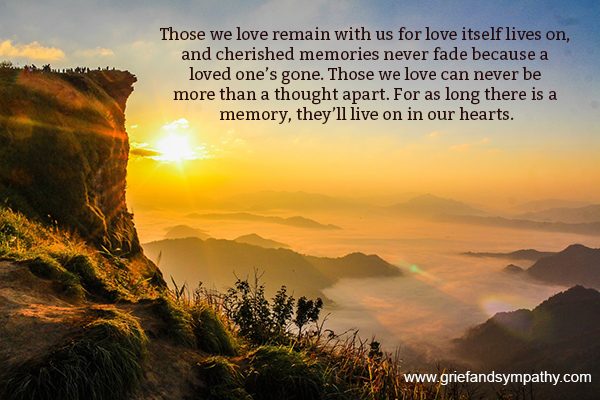
We wish you strength and courage on your grief journey. There are many pages on this website which will help you cope. You will find many of them here on our page on 'how to deal with grief'.
Where to get help:
Have You Considered One-on-One Online Grief Counseling?
Get Expert and Effective Help in the Comfort of Your Own Home
The following information about online counseling is sponsored by 'Betterhelp' but all the opinions are our own. To be upfront, we do receive a commission when you sign up with 'Betterhelp', but we have total faith in their expertise and would never recommend something we didn't completely approve.
Do you feel alone and sad with no support and no idea how to move forward? It can be tough when you are stuck in grief to find the motivation to get the most out of your precious life.
Online counseling can help by giving you that support so you don't feel so alone. You can have someone to talk to anytime you like, a kind and understanding person who will help you to find meaning in life again, to treasure the memories of your loved one without being overwhelmed and to enjoy your activities, family and friends again.
- Simply fill out the online questionnaire and you will be assigned the expert grief counselor most suitable for you. It only takes a few minutes and you don't even have to use your name.
- Pay an affordable FLAT FEE FOR UNLIMITED SESSIONS.
- Contact your counselor whenever you like by chat, messaging, video or phone.
- You can change counselor at any time if you wish.
- Click here to find out more and get started immediately.
- Or read more about how online counseling works here.
Sales from our pages result in a small commission to us which helps us to continue our work supporting the grieving.
Hypnosis for Grief - 10 Ways It Can Help You
Try a gentle hypnotherapy track to relax the mind. Learn how self-hypnosis can help you cope with grief at any time of the day or night.

For Remembrance:
Sales from our pages result in a small commission to us which helps us to continue our work supporting the grieving.
Memorial Jewelry to Honour a Loved One
Check out our lovely range of memorial jewelry for any lost loved one. Pendants, necklaces, rings or bracelets, we have them all in all kinds of styles. Choose for yourself or buy as a sympathy gift.
Create an Online Memorial Website
Honour your loved one with their own memorial website. Share photos, videos, memories and more with your family and friends in a permanent online website. Free for basic plan with no ads.
- Grief and Sympathy Home
- Dealing with Grief
- Grief Myths




